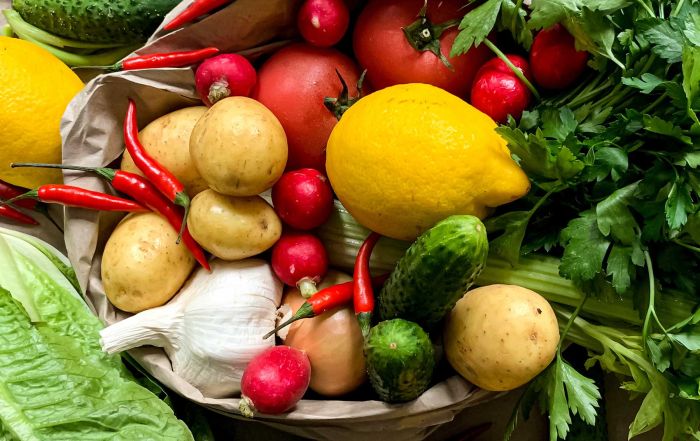Salmonella Outbreak Linked to Onions Sickens over 800
A month or two ago in the blog, we discussed the importance of having a food traceability system within your operation. Again, this past month, we were reminded of why such a system can be so very important. If you are in the foodservice industry, you have likely been following, or at least heard about the Salmonella Oranienburg outbreak. If you haven’t, you likely might be living under a rock. To-date, cases have gone back as far as late-May 2021 and have been identified in 37 states and Puerto Rico.
Although, the actual number of people impacted is likely much higher because many people recover from Salmonella without seeing a medical professional, as of late-October 808 illnesses and 157 hospitalizations have been linked with the outbreak. Fortunately, no deaths have been reported as of this publishing in early November 2021.
While the investigation is on-going, ProSource Produce, LLC (or otherwise known as ProSource, Inc.), based in Hailey, Idaho, and Keeler Family Farms, based out of Deming, New Mexico have been identified as the two main suppliers of the whole, fresh onions, which were imported from Chihuahua, Mexico. The onions in question can be either red, yellow, or white, and are various sizes (e.g., jumbo, medium) and in cartons ranging from five to 50 pounds and in mesh sacks ranging from two to 50 pounds. Distributors and/or brands who also carried the onions include Big Bull, Peak Fresh Produce, Sierra Madre, Markon First Crop., Markon Essentials, Rio Blue, Rio Valley, and Sysco Imperial. Four other recalls have been issued from suppliers who used the recalled onions in processed products or have otherwise repackaged them in other types of products.
Because the shelf life of onions is quite long, it is important to carefully check your inventory records to ensure you have not received a shipment of the recalled product.
Because the shelf life of onions is quite long, it is important to carefully check your inventory records to ensure you have not received a shipment of the recalled product. If you receive product from a broadline distributor, you have likely been contacted if you received the product. But don’t rely on your supplier, practice your own due diligence. If you don’t have the packaging, cannot track down the invoice for the current stock of fresh onions, or are simply not quite sure where the product came throw it out. I’d rather you throw out a few hundred dollars of onions than to be involved in a foodborne illness outbreak.
The specific cause has not yet been identified. It is possible that we may never know the actual source, but the Food and Drug Administration and Centers for Disease Control and Prevention investigation is on-going. You might recall a similar outbreak of Salmonella Newport 2020 that sickened 1,127 individuals and hospitalized 167 in the U.S., not including those in Canada. At the time, it was the largest Salmonella outbreak in the U.S. in the last decade. The Food and Drug Administration was not able to identify a conclusive cause of the outbreak but surmised that it could have been an irrigation issue because of the water source tests that found Salmonella Newport near the fiends in which it was grown.
The recall highlights the importance of active managerial control and having an active and proactive approach in your operational food safety plan. I did promise in my last blog we would discuss a bit more this month, but rest assured, it will be the focus of my blog later this month.
Be sure to join us on November 17th for our SafeBites webinar, entitled, “Practicing Good Agriculture: A Primer for Foodservice Operations”, which is quite timely given the onion outbreak we are experiencing. The webinar will be especially pertinent for those of you who current work with a local farmer in procuring produce or are looking to start a farm-to-table program for your foodservice operation. Be sure to register today. Risk Nothing.
READ MORE POSTS
Halfway Gone, A Mid-Year Food Safety Check-up for your Foodservice Business
July is often a time when a portion of us in the foodservice business are at [...]
From Farm to Fork: Knowing the Importance of Food Origins
In the foodservice industry, maintaining high standards for the food that comes into your back door [...]
Brushing up on Hygiene: Are Nail Brushes the Unsung Hero of Clean Hands?
Last month, I focused the discussion within the blogs on handwashing. One aspect of handwashing that [...]
Clean Hands, Safe Eats: Considerations to Improve Handwashing Compliance
In my blog earlier this month, I discussed a bit of the art and science behind [...]










